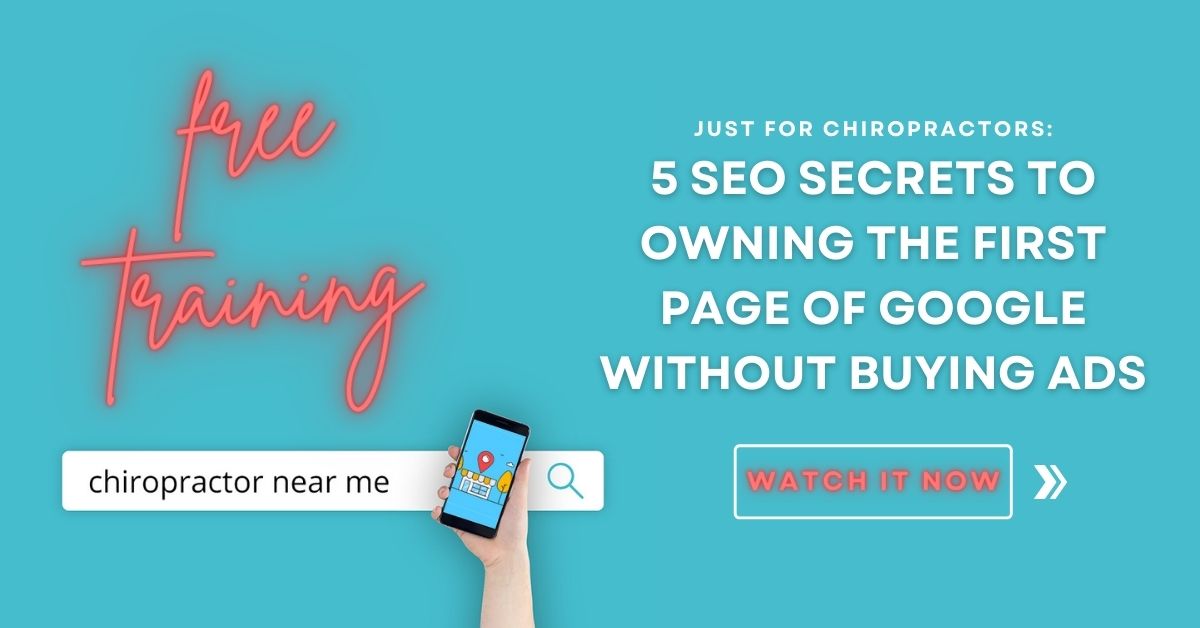Join us and learn all the new SEO and content marketing trends to propel your business!
Struggling to get your head around Google Analytics 4? Curious about the potential of AI tools for writing and SEO?
Get your notebook and pencil because we’re serving up all the new SEO and content marketing trends you need to thrive in 2024.
In this episode, we're tearing down the complex world of Google Analytics 4, unmasking the rise of voice search, and highlighting the increasing significance of video SEO. We equip you with strategies to supercharge your video optimization.
Plus, we explore AI tools for writing and SEO and dive into the practical applications of AI technologies, like ChatGPT, revealing how they can aid in creating effective blog posts. Not just that, we discuss the emergence of AI-powered search queries and zero-click searches while stressing the value of expert, user-friendly content. You’ll learn about Google's unique methods of assessing the quality of search results and why it's crucial for your business.
Now, let's not forget about content optimization, understanding search intent, and link building. This episode sheds light on the art of designing content that resonates with your target audience and how understanding search intent can significantly boost your ranking.
We'll also delve into Google's link spam update - why you should focus on link quality over quantity and how best to optimize your Google Business Profile listing. Expect tips on collecting reviews and unraveling the potential of zero search volume keywords to attract more qualified leads.
Show Notes
In this episode, you’ll learn about:
New SEO and content marketing trends to help your business or clinic thrive online and off
How to use AI and Chat GPT properly
How virtual reality can make you stand out
Why good links matter
The importance of quality content
What zero-click searches mean to your business
How to maximize your keywords
And much more
Listen to the audio version:
Watch the video version:
Selected links and other resources related to this episode:
3 ChatGPT Mistakes That Can Hurt Your Clinic’s Marketing & SEO
A Chiropractor’s Guide for Optimizing Bing Places for Local SEO
Google Business Profile: The Ultimate Guide to Optimize Your GBP Listing
Google Posts: An Overlooked Google Business Profile Listing Feature
Link Building for SEO: A Beginner’s Guide to Building Quality Backlinks
Suggest a topic for an upcoming episode of the Propel Your Practice Podcast
Free training: Five SEO Secrets to Owning the First Page of Google Without Buying Ads
Resources and citations for statistics:
If you're a clinic owner looking to get more traffic to your website and improve your online presence, then you're in the right place. On the Propel Your Practice Podcast, we provide chiropractors, physical therapists, and other clinic owners with actionable digital marketing strategies, including local SEO and effective website best practices.
You'll learn simple and actionable solutions to help your clinic rank on Google and beat your competition. Together, let's propel your practice.
Hello, I am Darcy Sullivan with Propel Marketing & Design. Well, I am so excited you decided to tune in and spend this time with me. Today we're gonna be going over 15 trends that I think you really need to know about, and not only just know about, but we're gonna be talking about how you can leverage these.
So, while there are so many advancements in technologies when it comes to SEO and content marketing, I selected 15 for us to go over today that don't require a crazy level of technology. You don't have to be too tech-smart or get too crazy when implementing these new trends, but they are important for you to know about.
And obviously, we'll be discussing AI and ChatGPT, but because of the fact that we picked 15 to go over, you know that we'll be diving into more than just those two topics.
So, before we get started, if you haven't had the chance to tune in and listen or watch the free training we have all about SEO (search engine optimization), please feel free to visit propelyourcompany.com/learn.
There you will find the Five SEO Secrets to Owning the First Page of Google Without Buying Ads. If SEO is all new to you, that is such a great place to start. It'll get you tuned in to how to start to dive into creating a successful SEO campaign.
Let's dive into these 15 SEO and content marketing trends you need to know about, and we're gonna start with number one.
Number one, Google Analytics 4. And oh, I know numbers, right? Sometimes people get excited diving into numbers and looking at analytics, and sometimes people get a little stressed out.
Well, I've got good news for you. If you're one that finds looking at analytics and data a little overwhelming, down in the Show Notes, you will find tons of resources to help you with making the switch from Universal Analytics to Google Analytics 4, along with understanding the differences and how information is acquired and showcased in these analytics systems. Again, you can grab that in the Show Notes.
I always feel like, when it comes to things like Google Analytics, it's much easier to dive into a video or a blog that shows images and click-here-for-this, and goes into more detail than to cover it in a podcast like we're doing today.
So, you should have already implemented Google Analytics 4. Hopefully, you've jumped into your account, played around with it for a little bit, and have a better understanding of your numbers.
Google Analytics 4 is the newest generation of analytics provided by Google, and it collects event-based data from both websites, and so it's much more advanced than Universal Analytics was, but it does require a little bit of a learning curve. So, if you haven't already, again dive into those resources.
So that is one of the newest or newer technologies for some people who haven't had a chance to really dive into analytics.
Up at number two, we've been talking about this for a while, but voice search continues to be on a rise.
Now, I went through a number of resources when preparing for this episode, so in the Show Notes, you'll see some references to where some of these statistics came from.
But Google, which we all know Google and trust Google, reports that four out of 10 US adults perform at least one voice search per day, and again, we've been talking about voice search for a while now, but it really does continue to be on the rise, and it really is part of the future.
So, that's all great, right? But how can you use this, and how can you leverage this in your SEO and content marketing plan?
Well, first off, consider optimizing your content around longer, more conversational keywords. Keywords that people use on their keyboards are often different than what they use when they do a voice search, and I think we all know this that when you do a voice search, you're more apt to expand the question that you're searching for or the words that you're using, because it's easier to speak the words than to type out so many words.
So, voice search continues to be on the rise. That is number two, and again, you can leverage this by using more natural-sounding and longer keyword search phrases in the content and SEO that you're putting together.
That does not mean that you shouldn't also still focus on your core SEO keywords that might be shorter. They might have a shorter tail, meaning they're not gonna be as long as what we refer to as the long tail keywords. They’re, they're longer.
So, it might be, “What is the best way to get rid of my back pain quickly?” That might be a very long keyword versus a short keyword phrase of “back pain.” You can see the difference there, and you can see how one's more conversational than the other.
Okay, number three, just like voice search is becoming more important, video is becoming more important. And again, video, we've been talking about this for years, but video SEO is becoming more important than ever before.
In fact, YouTube themselves report they have a billion users. Oh, that's a lot, right?
And after Google, YouTube is the second most used search engine, and Google incorporates video content into its main search results. Google is likely to show videos at the top of search engine results when a user is looking for a particular topic around music or how-to tutorials.
So how can you leverage this trend? Well, first of all, you wanna make sure that you're optimizing your videos for search in the best way that you can. This includes using keyword terms, adding chapters to your YouTube videos, adding your YouTube videos to YouTube, and then embedding them in your website.
What you don't wanna do is just embed your videos directly to your website, and I would suggest using YouTube over Vimeo or one of the other hosting solutions, because, again, it is the second most used search engine.
You wanna make sure that you're optimizing your titles, your tags, your descriptions, all the things to ensure that Google understands the information that you're providing with that video
And we have got a YouTube SEO guide and additional video resources- video SEO resources- that you'll find in the Show Notes to help you if that's one of those trends that, you know, your clinic or if your small business could really finish it from.
Trend number four, virtual reality. And before you sit there and say, wait a minute, I don't think my small business or clinic can really leverage virtual reality. I beg to differ. In fact, in the Show Notes, we will include two resources directly from Google that talk about how you can incorporate a 360-degree view of your storefront or showcase virtual tours of your clinic or business, and you can use those in your Google Business Profile listing, and you can use those on your website.
So that is one way that you can leverage virtual reality. Pretty cool, right? All right.
Next, step number five is mobile-first indexing, and this gives back to Google again. Google in the summer of 2019, fully rolled out Google mobile-first indexing, which means, for the first time, Google now considers the mobile version of your website the main version of your website, not the desktop version, which means that Google's mobile crawlers need to be able to fully index the content on your website.
And we need to make sure that it works really well on mobile devices, and that also includes tablets. So not just smartphones, but tablets. So, you wanna make sure that you have looked at your website on mobile and that your website on mobile is easy to navigate, easy to read, easy to use.
Also, remember that when people are booking on mobile, they're looking at a small screen, which means that paragraphs should be shorter, so they're just not scrolling, scrolling, scrolling, scrolling, and still on the same page.
We wanna break up content easier for people to read, and we want to make sure that the website loads quickly. Site speed isn't one of the things that we're including in this technology list because it is just kind of assumed these days.
Okay, on to number six, and this you might not have heard about before. This is all about tightened page headers in results for Google. So, in 2021, Google rolled out a new search ranking feature called Pressages.
This feature lets Google rank specific sections of a page or passage semi-independently from the page itself. In other words, instead of ranking an entire page on relevancy, Google now can score relevancy of specific sections on a page.
This again goes to show you how important it is to have your pages organized. So, if you have header tags that say this piece of content is going to… like, this paragraph is highlighting this information, it's gonna be not only easier for somebody that's visiting your website who's scrolling through to find that section, but it's also gonna be easier for Google to understand section and show that section when it feels it's relevant for somebody who is searching for a keyword phrase or searching for that specific content.
Okay, number seven, and I think this will come as absolutely no surprise to anybody who is tuning in today, and that is, yeah, copywriting tools.
Yes, ChatGPT, we're getting to you. So, I think that unless you've been living under a rock, you know all about ChatGPT, or you've heard about it, or you've played with it, or people have told you that you should try it out.
Well, let me tell you, my friends, AI tools like this are amazing if you use them in the right way. So, what we don't wanna do is just outsource all of our content marketing and all of our writing, and all of our SEO research to ChatGPT and those other tools.
AI is an amazing source for helping you in the idea stage and to help you polish some of your content elements. Once you put them together, many of these AI tools can help you enhance writing by doing common tasks, and when you're creating a post, they're really good.
Like a blog post- they're really good for throwing in there and asking, hey, ChatGPT, how would you improve this blog post? Or hey, ChatGPT, help me outline a blog post about fill-in-the-blank. Or hey, chat GPT, I'm writing a blog post about topic. Please give me 10 examples of click-worthy titles to include.
So, we have a podcast that we did about ChatGPT mistakes that are very common. That's a great resource to listen to if you're starting to get into ChatGPT. We're gonna be incorporating more content coming up and upcoming podcasts talking about AI, talking about ChatGPT.
But the important thing here is to not completely rely on tools like ChatGPT to create the content for you because what they produce isn't always accurate, it isn't always up to date, and it is basically that some of the tools are going out there gathering information that already exists and kind of just spinning it around to say it's slightly different.
So, it can be pretty mundane, and it can reflect what's already out there, and again, sometimes it can be inaccurate and not up-to-date. It also might not be in your brand style; it might not match your branding.
So, you do wanna be very careful and, even though you can use it, even though you should use it, you use it in a way that adds a layer and that you're not just leaning on it like a crutch.
Okay, let's go on to number eight. Number eight, artificial intelligence. AI now answers search queries. That's right. AI is an SEO trend that is going to really change SEO as we know it.
And we see this with generative AI. Generative AI is AI that can create new content based on the data it was trained on and in the context of search. This means that search engines can formulate a summary response to a search query, so users don't need to scroll through results and visit sites listed, they just need to read the AI summary at the top of the page.
Now, when- cause, we'll talk about this later on- but when somebody finds the results that they're looking for without clicking through, we call that a zero-click search. So, AI-generated summaries can sometimes provide a zero-click search, meaning somebody doesn't have to click through.
When we talk about- coming up soon, we'll talk about Google Business Profile listing, Google Maps results, that stuff- some of that also includes a zero-click search because people are finding the information without having to click through to a website.
But let's get back to this, so Microsoft has been going at it with being AI. They've generated an AI-powered chat by ChatGPT into search engines. This happened in February of 2023. And Bing now creates its own copy to respond to users, and it's too soon to say exactly how we should optimize for generative AI. This will definitely be something that we'll be talking about more and more and more in the future, but if you're a clinic, people are still gonna wanna visit your website to find out the services that you offer, your solutions, more in-depth.
So, while I do see this playing a role in the way that some search changes, it still will be important for you to optimize all of the content on your website, and this does bring us to the point of the fact that Google isn't the only search engine in town anymore, and it's been a long time coming.
Google is still the biggest, will still be the biggest, but there are other ways that people are going about searching, and we'll talk about that next, which is the rise in the use of other search engines.
So, again, Bing is no Google, but with its advances in technology, more people are starting to use other search engines other than your traditional Google to search. This includes Yahoo, this includes Bing, this includes all of these others.
So, what does this mean? Well, as Bing tries to grab more of that market share, you have your Google Business Profile Listing, which controls your Google Maps listing that's associated with Google.
Well, Bing has its own version of that. It's called Bing Places for Business, and what you're going to want to do is not only optimize your Google Business Profile listing but also optimize your Bing Places for Business listing. And while you're at it, and we've got tons of resources for this, you also want to optimize your Apple Maps or your Apple Business Connect place card listing and your Yelp listing.
And we've got the local listings bundle that walks you through exactly how to do that. You'll find that in the Show Notes, along with our guide on how to optimize your Bing Places for Business Listing.
Okay, next up, we have the fact that helpful, expert content is more important than ever. Google makes updates. Google will continue to make updates in how it evaluates the content that you're providing on your website, and I think that this is where it comes into effect, where people say, well, can I have ChatGPT just write my content for me? Can I have AI sources write my content for me? And other people are saying, oh no, don't do that, whatever you do, don't do that because Google's going to know. Google hates AI content, etc.
Google has stated the fact that helpful expert content is more important. So, take that how you will. Is AI-generated content really quote-unquote helpful expert content? Probably not.
So, it's that Google prefers this helpful expert content more. In 2022, Google added expertise to its search quality reader guidelines in its handbook to evaluate the quality of search results. So, this is something to keep in mind that you really want to do with that update that they did. and again, they do update so often. It's not just about what happens on one update, but it should encourage you to create original and formative content with unique, valuable insights that are useful to people.
So, we're not designing content for search engines. We're designing it for your target audience, hopefully, and ideally, at every stage at the funnel, when they're first getting to know your business, when they're first searching, all the way down to when they've done business to you or they're a current client, customer, or patient.
However you interact with them, we want to focus on what Google says it wants to see more, which is people-first content that meets search intent, which leads us to search intent.
So, number 13 is search intent, and the thing that you need to know is that, again, like we said, the best content isn't all created for search engine crawlers. It's created for your audience.
So, understanding the search intent on why somebody would be searching for your business or searching a query, a keyword term or phrase that relates to your business, is going to help you in ranking for that. So, what are they looking for?
And there are four types of search intent that you should know about. Navigational, this is when a user is looking for a specific website or page. We have informational, that's when users are looking for more information about a topic. You have transactional, that's when somebody is ready to buy or to take an action. And then you have commercial, that's when someone is comparing products or services before making a purchase.
You want to focus on content that matches the user's queries and then their expectations rather than just optimizing around what you think the search engines want to see and focusing on queries that relate to specific keywords.
Okay, next step; we've talked about Google's updates before, but one of them that is important to note is that they ran an update specifically around link spam. So, this technology update refers to link building, and even though Google's original link spam update was done way back in 2022- December of 2022, that's still not that long ago, and we've definitely seen people get dinged for this.
So basically, we're talking about link building and driving links to your website, other websites linking to your website, which is good for SEO, right? Like, I always kind of equate it to the cool-by-association. You walk into high school on day one, and you're a freshman, and nobody knows who you are, but maybe your older brother was a senior varsity football player. He gives you a high five in the hallway, and all of a sudden, you're cool by association.
That's kind of the way that I like to explain link building to somebody who's just starting out practicing link building and trying to build links.
When you're trying to build links, you wanna make sure that they're relevant and that they're not spammy. So, it used to be that some SEO companies or other companies would sell link-building strategies just driving links to your website, but they get penalized. And the reason that they get penalized is that AI-powered BAMBRAIN, which is what Google is using, will now detect both buying and selling links to sites used for the purpose of passing links.
So, what does this mean? Again, while link building is a great strategy, and you should use it, you should really focus on the quality versus the quantity. And Google is gonna get better and better at detecting AI link farms, all the crazy stuff in the back end. So, you do wanna make sure that you focus on strategies and tactics to avoid these quick-fix solutions so that you're not going out and buying a bunch of links to your website. I would think that most people listening in today wouldn't be doing that, but it's something to mention.
Okay, next step, we already kind of mentioned zero-click search, but this also goes into play with your Google Business Profile. So, there have been updates to Google Business Profile listings the way that Google handles the rankings.
So, your Google Business Profile listing is what controls your Google Maps listing. And even though we hear all the time about Google making updates to its overall algorithm for the general search section, we don't hear that much about when they go to make updates to the Google Business Profile listing, and there have been updates that have been made.
Also, Google tries to understand your business and your business offerings, so be sure to go in (if you haven't looked at your Google Business Profile listing lately) and go in, dive in, make sure that it's up to date. We've got tons of resources for optimizing that listing, but there will be times when Google tries to make an adjustment based on information that's gathered online about your company, and you either need to accept that or suggest something different to give it the correct information.
And we've seen even the data that's provided via your Google Business Profile in sites- it used to be that you would be able to see how many people clicked on your Google post there, and now you can't. There is a workaround for that, and we have that resource in the podcast that we did on Google Posts, an overlooked Google Business Profile listing feature.
Be sure to go in and verify your Google Business Profile listing, if you haven't already, and make sure that you are staying up to date with the information that's listed in that listing and that you are collecting reviews.
Reviews. We are seeing that Google is not posting every single review that comes through, mainly due to it increasing its spam filters, which means that you should be going out trying to collect even more reviews, knowing that there could be a chance that some would not show up.
All right. So, our last one that I wanna go over relates to keywords, and we've got tons of resources on our website when it comes to keywords. But keywords would be the keywords that you type into Google or somebody types into Google to find your website, your content, and this relates to zero volume keywords.
So, search volume, how many people are searching for a specific keyword, has traditionally been a key factor in deciding which keywords to target. But what if your target keyword has their search volume? We call this zero-search volume ZSV. That's exactly what it is.
There are specific long-tailed queries that barely anyone searches, or that if you use a keyword search tool, it's gonna say no one’s searching for that. These are super hyper-focused keyword terms, but they can help you really attract more qualified leads and achieve bigger, higher conversion rates, especially if it's somebody- that your content is geared towards the bottom of the funnel, then really ready to take action.
And the reason that we bring this up is because I think a lot of people really go for those keyword terms that are the bigger, the better, the popular, the more competitive. And I would just suggest to you that how we also talked about earlier when we talked about voice search and how we use longer tail, longer keywords, more longer keywords that you consider to add in.
Some of these zero-volume keywords that you know relate to your target audience as well, so they're less competitive, and it's more of a targeted approach, and it gives you the chance to build awareness in a niche that can help you build traffic and rankings.
Okay, so let's go over everything we talked about today and I know it was a lot, and they're probably not going to say these in order, but we talked about:
Your Google Analytics 4. You want to make sure that you made the switch from Universal Analytics to Google Analytics 4.
We talked about the rise of voice search.
We talked about video SEO.
We talked about real-life ways you can incorporate virtual reality into your SEO and digital marketing plan.
We talked about mobile-first indexing.
We talked about those tightened page headers and how Google can display passages or sections of your website page versus the whole page.
We talked about AI copywriting tools like ChatGPT.
We talked about, oh no, wait, hold on, I almost missed one, you guys. Okay, hold on. This is good, this is good, okay. So sorry, let's round it out with one more, and this one refers to search as well. Sorry, I've got this big crazy document going here. Can't believe I almost forgot this one.
Okay, this one relates to people off-set rank. So, we talked about- we just came off of talking about zero volume keywords, and now we're going to talk about a different keyword strategy, and this one relates to people also asked.
So, when you go to Google something, you will see a section where it says people also asked. Well, you can leverage this. You can leverage this with your ratings, with prominent positions at the top of Google. Everyone wants to rank in this highly coveted feature, and it can really increase your chances by you making some minor tweaks to your content.
And when this comes into play, it's again using that header to ask one of the questions. Again, an H2 two or an H3, depending on where it is in your content. And if you don't know what I'm referring to when I say an H2 or an H3, grab one of our SEO guides or watch one of our SEO trainings where we talk about this more.
But basically, you want the header with the question and then the answer, or consider doing an FAQ section at the bottom of the page or on a page itself. The benefit of doing it at the bottom of the page it can summarize key points for readers. Using the FAQ section at the bottom of a page works well on pages; sometimes, it works well on blog posts, but usually, it does not. So, use it in a way that it actually makes sense.
But basically, we're using some of those long tail question keyword phrases, and then we're answering. So, in an example for multivitamins, for example, people also ask the questions are: what is a multivitamin good for? Is it good to take a multivitamin every day? What is the best multivitamin every day? Which is the best multivitamin?
But creating content around the terms, people are searching for, with the people also ask, is a great way to expand your reach by expanding the keywords that you're trying to rank for.
Okay, let's hope I didn't miss anything else. Let's go back through:
We talked about Google Analytics.
We talked about voice search, video search or video SEO.
We talked about virtual reality.
We talked about mobile indexing.
We talked about those tightened page headers and passages.
We talked about AI copyrighting tools like ChatGPT. I'm trying to keep this episode short, so we didn't really talk about all of the other AI tools. We just kind of highlighted the copyrighting one.
We talked about artificial intelligence now answering search queries.
We talked about tweaking content for that people also ask section.
We talked about creating helpful expert content and how that is what's important to Google over some of the AI-generated generic content.
We talked about the rise of other search engines. We talked about Bing. We talked about making sure that you are also optimizing your Bing Places for Business listing.
We talked about zero-click searches and changes and updates to Google Business Profile listings.
We talked about search, and the different types of intent people have when they're searching.
We talked about link billing, and we talked about that link building, spam updates, and how to avoid getting in trouble for having spammy links and not purchasing spammy links.
We talked about zero-volume keywords.
My gosh, we talked about so much more, so today's episode was longer than normal. I really hope you enjoyed it. If you did, please reach out to us on Instagram @propelyourcompany. Let me know what you would like to hear for upcoming topics.
Let me know if you have any questions about this episode. Let me know if you like a little longer episode like this one or if you prefer the shorter ones. We've got kind of a combination of all of them, and let me know if there is any specific trending technology and content marketing, SEO, or any questions that you have. We would love to answer them. Thanks for spending your time with me today. I greatly appreciate it.
Well, hey, before we head out, I want to invite you to join in on a free masterclass I put together on the Five SEO Secrets to Owning the First Page of Google Without Buying Ads. You can find a link to sign up for this free masterclass in the Show Notes for this episode or by visiting PropelYourCompany.com/learn.
During this workshop, we do a deep dive into strategies to help you improve your online presence. Including your Google Business Profile, that's what used to be called the Google My Business listing and what controls the Google Maps section, along with how voice SEO plays a big role in today's search and where you should be focusing your efforts online for the biggest impact.
All right. Well, that's it for today. Again, you can join the masterclass by visiting PropelYourCompany.com/learn. And if you have a topic that you would like to hear on an upcoming episode of Propel Your Practice, please send it in by visiting PropelYourCompany.com/podcast-topics or looking for the link in the Show Notes.
Thanks so much for your time. I'll talk to you soon.
Darcy’s SEO strategies are easy to implement and effective. She’s the #1 SEO expert I refer to whenever I need help with my rankings.
SEO queen! I can’t thank Propel and Darcy enough for holding my hand through the SEO process! I’m loving the podcast and all the insight! Also loving that my business is now getting the brand awareness and sales I’ve always wanted!
Wow! Clear, concise and impactful. Excellent details and tips - already seeing a return!! Worth the 20 min listen.
Get our next podcast episode delivered directly to your inbox:
We'll email you when we release new episodes.
Sponsors
This episode of the Propel Your Practice Podcast is brought to you by Propel Marketing & Design. Propel Marketing & Design helps Chiropractors, Acupuncturists, Physical Therapists, Wellness Practitioners, and other clinic owners improve their website rankings.
Do you have a suggestion for an upcoming topic or guest?
We love a good suggestion and we’re happy to take yours! Tell us about a topic you want to hear more about or a guest you think would make an impact here and we’ll take care of the rest.
Interested in sponsoring a Propel Your Practice Podcast episode?
If your organization would be a good fit for our target audience, we’d love to work with you. Hit the link below and let’s talk.










![How to Write a Professional Chiropractic Bio [Template Included]](https://propelyourcompany.com/wp-content/uploads/write-a-bio-500x383.jpg)

